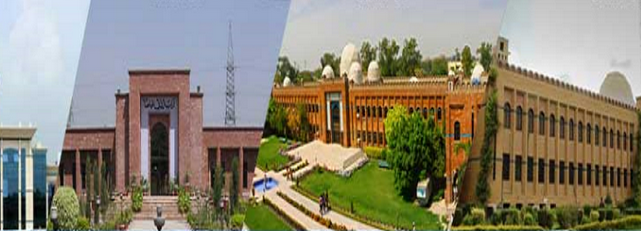To get an admission offer from a
university is the extremely exciting for student applicants all across the
world. Many applicants face difficulties when choosing a university. According
to international students’ surveys, applicants have to take in number of
factors into account, before selecting a university. They look for a high
standard of teaching, campus location and services, availability of
scholarships and financial plans.
The admission process for a university is more intense compared to an admission process for a college.
During their final term at college, students start shortlisting universities
and filling out applications. They sit for standardized tests, and start
worrying about whether they will get admission offers from selected
universities or not.
Pakistan came into being in 1947
and at that time it had only one university operating, ‘The University of
Punjab’. More than 70 years later, there are almost 190 HEC recognized universities
operating in Pakistan. Yet, the number of universities compared to the increase
in population of the country is quite handful. This means that there are fewer
universities as compared to the potential student body, therefore the number of
available seats for advanced degree programs is low as compared to the number
of applications for admission. Thus, Pakistani students go through a stressful
and tense admission process, not knowing whether they will be able to secure a
seat or not.
When applying to universities, to
make their application stand out, applicants do not only have to meet the
academic admission requirements, they also have to show an active
extracurricular profile, work and other related experiences for the degree they
are applying for. Needless to say, the admission process for the universities
is demanding and tough, and not particularly open and fair. In majority cases,
it is difficult for students who come from poor and rural backgrounds of
Pakistan to show these experiences or display extracurricular activities,
because they do not get these types of opportunities easily. This results in
the selection of less number of applicants from rural and poor
backgrounds.
Furthermore, nepotism, bribery,
political influence and reserved quotas make it even more difficult for
applicants to secure admission in universities. This is more noticeable in public sector universities as compared to the private sector universities in Pakistan.
Sometimes government officials and politicians influence university staff to
provide admission to applicants of their choice, and other times university
employees are corrupt and outwardly demand money from applicants in exchange
for admission. Thus, making it even more difficult for applicants from weaker
social and economic backgrounds to secure admissions.
Moreover, there are almost no
schemes available to secure student loan in Pakistan. Few banks and financial
institutions which do offer student loan schemes, charge extremely high
interest rates, making it a poor choice. Most of the times applicants who fail
to secure an admission in public sector universities, find it difficult to pay
high cost of a private sector university education. This is an additional
barrier faced by applicants belonging to poor households. The Government of
Pakistan has no check on the fees charged by private universities. The private
sector universities often exploit students and their parents, as lack of public
universities means applicants have no other choice, except to enroll at a
private university to avail higher education.





No comments:
Post a Comment